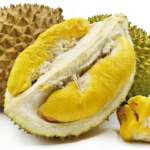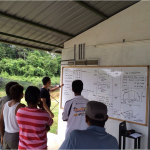Introduction
The recent rationalisation of diesel prices in Malaysia has had significant ripple effects across various sectors, particularly in agriculture. Even before the adjustment, the cost of vegetables was on the rise due to several factors, including the return of workers for Hari Raya Haji and the halt in foreign worker permits. This blog post delves into the current situation, examining how these elements contribute to the increasing prices of agricultural products.
Pre-Rationaliz=sation Trends
Before the diesel price rationalisation, the cost of vegetables was already climbing. This trend can be attributed to a couple of key factors:
- Labor Shortage: With many workers returning home for Hari Raya Haji, there was a noticeable reduction in the labor force available for farming activities. Additionally, the cessation of foreign worker permits exacerbated this issue, creating a labor crunch that directly impacted productivity.
- Seasonal Demand: The festive season often sees an uptick in demand for fresh produce, which can lead to price increases. Farmers and distributors were already feeling the pressure from these seasonal demand spikes.
Current Price Snapshot
As of June 15, 2024, here are the latest prices received from distributors:
- Cap Green: RM11.00
- Red: RM13.00
- Cauliflower (12kg): RM105
- Carrot (10kg): RM45
- Bendi: RM3.80
- Katak: RM6.80
- Peria: RM8.00
- Long Bean: RM9.00
- Kasturi: RM5.00
- Nipis: RM5.50
- Timin: RM4.60
- Old Cucumber: RM4.50
- Red Chili: RM12.00
- Cherry: RM12+
- Cabbage: RM4+
- Romaine: RM8+
These prices reflect a marked increase, indicating the immediate impact of diesel price hikes on transportation and logistics costs.
Post-Rationalisation Impact
The rationalisation of diesel prices has exacerbated the situation. Diesel is a crucial input in the agricultural supply chain, powering everything from farm machinery to transportation vehicles. As diesel prices rise, so do the costs of planting, harvesting, and distributing vegetables. This directly translates into higher prices for consumers.
Factors Driving Price Increases
- Transportation Costs: Diesel is integral to transportation. With increased fuel costs, the expense of transporting vegetables from farms to markets has surged, leading to higher prices.
- Operational Costs: While the government provides some subsidies for diesel used in agricultural machinery, not all related costs are covered. For instance, trucks that transport vegetables but are not owned by farmers often do not benefit from these subsidies. This is common when trucks are registered under different names but still used for transporting produce.
- Market Dynamics: The combination of reduced labor availability and higher operational costs creates a challenging environment for farmers. They are forced to pass these costs onto consumers to remain financially viable.
Subsidy Challenges
Although the government maintains subsidies for farmers, many related expenses are not subsidized. For instance, trucks that transport vegetables but are not owned by farmers often do not benefit from subsidies. This is common when trucks are registered under different names but still used for transporting produce.
Additionally, personal transportation for farmers, especially those living far from their farms, is another unsubsidized expense. With a subsidy of RM200 per month, many farmers find it insufficient to cover their transportation costs.
Seeking Solutions
While we understand the rationale behind diesel price rationalisation, exploring better methods to mitigate its impact on agriculture is crucial. Innovative solutions and supportive measures could help stabilize prices and ensure the sustainability of the agricultural sector.
Two Sides to Every Story
There are always two sides to every story, and the situation often seems muddy. On one hand, rationalizing diesel prices is a necessary measure for economic stability. On the other, it causes significant disruptions in the agricultural sector. Wild price fluctuations are detrimental to businesses, which thrive on predictability. Consider restaurants or households purchasing vegetables – how would you feel if your monthly expenditure suddenly increased by 20% or 30%?
Local Pasar’s Role
At Local Pasar, we strive to provide consumers and businesses with varied options and help stabilize prices during these uncertain times. Our goal is to become a dependable platform for transparent and fair pricing of goods. By supporting local farmers and improving market access, we aim to create a more resilient and equitable agricultural system.
Conclusion
The rationalisation of diesel prices in Malaysia has had a profound impact on the cost of vegetables and other agricultural products. Combined with labor shortages and seasonal demand, this has led to significant price increases. Understanding these dynamics is crucial for consumers, policymakers, and stakeholders in the agricultural sector as they navigate this challenging period.
By closely monitoring these trends and implementing strategic measures, it is possible to mitigate some of the adverse effects and ensure a stable supply of affordable, high-quality agricultural products for all Malaysians.
Call to Action
We encourage our readers to stay informed about market trends and support local farmers by buying directly from them when possible. Together, we can help create a more resilient and fair agricultural system in Malaysia.
Feel free to share your thoughts and comments on this pressing issue. How have the recent diesel price changes affected you? Let’s start a conversation and explore solutions together!




